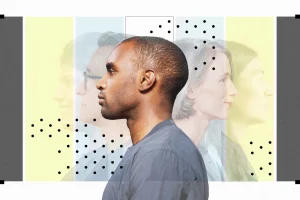I recently finished a revision of the Arabic translation of guidelines for caregivers (both professional and non professional), on caring for older people, and the process gave me some food for thought—Beyond the painful reminder of the decline that often comes with age, and the comfort in the quiet gratitude for our role as “unpaid” caregivers(something you truly relate to if you have elderly parents, or even young children, for that matter). It reminded me that the role of the translator-and the reviser-is not only linguistic and cultural but also ethical and political. Far from being a neutral conduit between languages, the translator is often an active participant in shaping meaning, and at times, an unacknowledged advocate for inclusion, fairness, and representation. This revision task reminded me that translators can, and often do, operate as activists, especially in domains like public health and social care, where language has real-world consequences.
One striking example in the text involved the assumption that men are cared for by their wives. Phrases such as “living with his wife” or references to caregiving responsibilities placed solely on women reflect a gender bias that reinforces traditional roles. It overlooks the diversity of caregiving relationships—and also the fact that women age too, and may need care themselves. I replaced “wife” with the more neutral and inclusive “partner,” which, in my opinion, aligns better with the principles of equality and respect that should be embedded in global health communication. Another example was the reference to “visiting the church” as a form of physical activity, and to “church groups” as a way of maintaining social engagement to prevent isolation. While such references may be culturally appropriate in certain contexts, they risk centring a particular religious and cultural experience in a document intended for a global and diverse audience. To ensure cultural sensitivity and relevance, I adapted it as ”visiting places of worship”, offering a more inclusive and widely applicable example of social and physical engagement. Another moment that stood out during the revision process was the reference to the text being written in “simple English” to support people whose first language is not English. While this may seem well-meaning, it carries an implicit bias—suggesting that simplified language is necessary only for non-native speakers. But is clarity not a desirable quality in any communication, regardless of the reader’s first, second, or third language? Plain language benefits everyone. In fact, it is often the hallmark of effective communication, particularly in public health. The translation into Arabic carried a similar note, referring to “those whose Arabic is not their first language,” which struck me as even more problematic. Modern Standard Arabic (MSA) is no one’s mother tongue; suggesting otherwise could be seen as patronising. For this reason, I removed the reference to non-native speakers altogether. Clarity, after all, is a universal value that should not be framed in terms of linguistic hierarchy.
I also made the deliberate choice to use more inclusive phrasing in the Arabic translation. In several places, the original text used the imperative form—“advise the person,” “encourage the person”—which, when translated into Arabic, resulted in masculine singular phrasing. I opted for more neutral, action-oriented structures such as “advising” or “providing advice,” which not only preserve the instructional tone and help avoid issues of formality (such as singular vs. plural “you”), but also steer away from using the masculine as the default form of address, and avoids reinforcing binary gender constructions that arise when attempting to include both masculine and feminine forms for every action. A small (hopefully meaningful) step toward making health communication more universally respectful, inclusive, and accessible!
Naturally, I had to write to the translation provider to explain the rationale for these changes. And yet, I cannot help but wonder: in raising my voice (metaphorically), do I earn my client’s respect, or their unease? Will I be seen as a conscientious professional contributing to the improvement of the work, or as someone stepping outside the boundaries of the role assigned to them? This uncertainty lingers, often for women in professional spaces. The question resonates even more deeply when we consider how, in some parts of the world, women’s voices are not only silenced professionally, but, altogether, erased. Under Taliban rule, for instance, women’s voices are forbidden in social-and private-spaces, for that matter. That extreme, chilling example reminds us that language is power, and that choosing to speak can be a dangerous act.
This experience reminded me that the translator is not only a linguistic and cultural mediator, but also an ethical reader and—whether we claim the title or not—an activist. Someone who challenges assumptions, promotes inclusivity, and helps shape how knowledge and values are communicated across languages and cultures. Yet this critical dimension of our work often remains invisible or undervalued. This is especially true in the AI era. As automated translation tools become more widespread and more advanced, there’s a risk that the human dimension of translation—its ethical sensitivity, cultural awareness, and capacity for critique—will be pushed aside. But in fact, our role becomes more essential, not less. Machines replicate patterns; humans interrogate them. Where AI may reproduce unconscious bias, human translators can detect and address it. If this is not activism, what is? In this way, translators serve as “ethical buffers”, to borrow Vandaele’s metaphor, between technology and society—a role that is more urgent now than ever.
*Vandaele, J. (2014). The implied author as an ethical buffer: An argument from translated and censored fiction. Style, 48(2), 162-180.
https://www.linkedin.com/pulse/translator-ai-era-ethical-buffer-khadidja-merakchi-webif/
